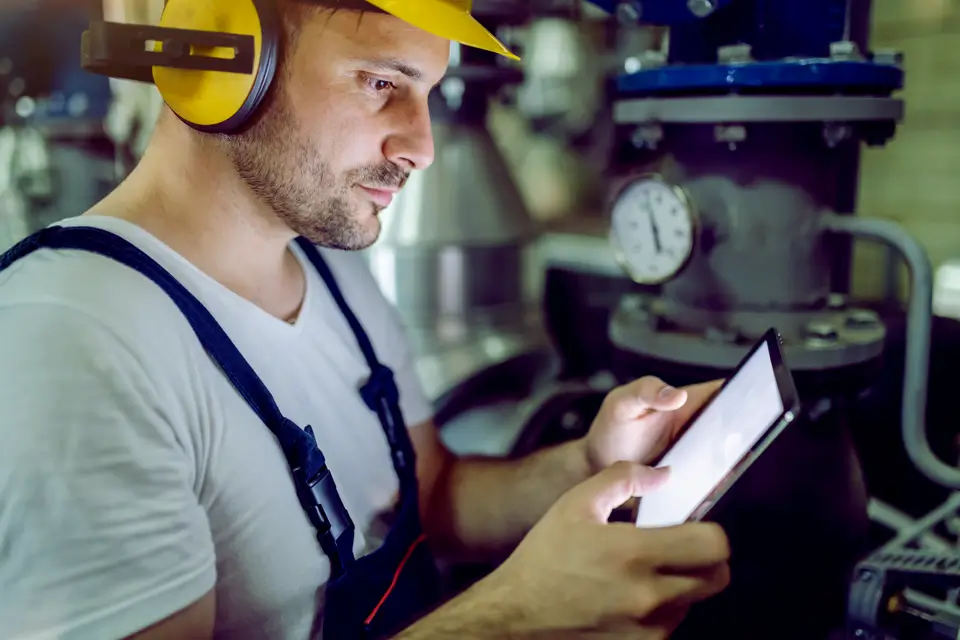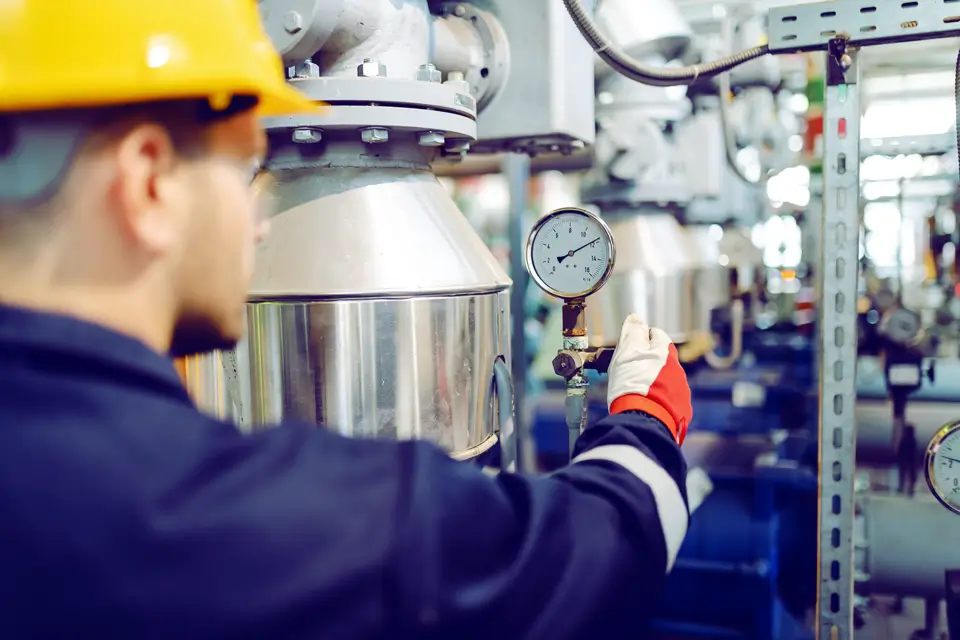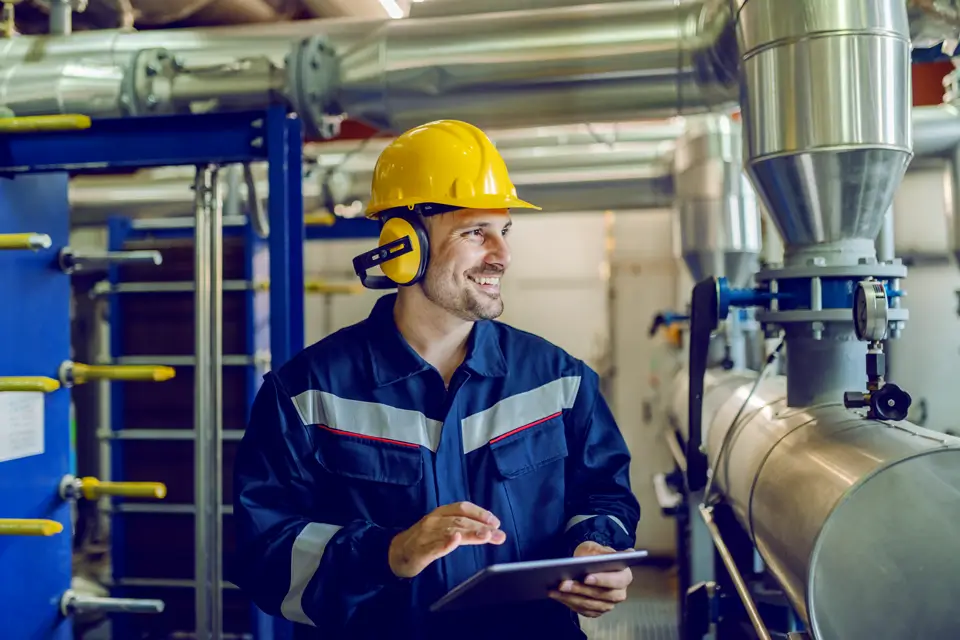On the floors and along the assembly lines of the manufacturing world, where progress hums with every machine, AI represents more than just a means to streamline operations—it brings new opportunities for enhancing employee well-being. As factories continue to embrace AI to standardize processes and boost productivity, they're also uncovering its potential to address the mental health challenges and safety concerns that have long plagued the workforce. By leveraging AI for predictive maintenance, real-time monitoring and training, and automated safety protocols, companies can create safer workplaces. Simultaneously, AI-powered quizzing, like that offered by DeepHow, stress detection, virtual health assistants, and optimized shift scheduling can significantly reduce employee anxiety and enhance mental health, leading to decreased employee turnover.
AI embodies a holistic approach to workplace improvement, intertwining technological advancements with human-centric solutions. The intersection of AI and employee well-being underscores a progressive vision where the future of manufacturing is as much about nurturing human potential as it is about technological excellence. And, with manufacturing ranked in the bottom 10% of industries for well-being, the time for senior leaders to take action is now.

Senior leaders are acutely aware of the many and varied challenges faced by employees in manufacturing environments. It’s no secret that manufacturing jobs often require workers to perform repetitive, monotonous, and physically demanding tasks at a fast pace, demanding high levels of focus and precision.
Studies reveal that two significant sources of stress in this industry are the constant pressure to meet production targets and the unpredictability of shift schedules.
These jobs also frequently come with safety hazards and concerns about job security, along with the compounding factors of constant noise from machinery, long hours spent indoors, and limited chances for social interactions. These conditions can lead to mental and physical exhaustion, boredom, high stress, anxiety, and decreased engagement. Moreover, many manufacturing workplaces lack comprehensive mental health policies and resources, leaving employees hesitant to express their feelings or seek help. When employees are stressed or exhausted, the likelihood of workplace accidents rises significantly.
Given the myriad of safety hazards and stressors in manufacturing and the snowball effect they can have on employee well-being, AI has become a valuable tool offering proven solutions to improve the work experience and boost employee happiness and resilience.

Manufacturing environments are often fraught with potential hazards, from heavy machinery to hazardous materials. Ensuring employee safety in these dynamic and fast-paced settings is critical, and AI technologies offer powerful tools to mitigate these risks:
By integrating AI-powered video training with predictive maintenance, real-time monitoring, and automated safety protocols, manufacturing companies can create a comprehensive safety and learning ecosystem.
For example, after one multinational steel manufacturing corporation captured a video of a critical process using DeepHow, they followed the Review process/functionality and identified a safety issue that had been missed completely. Safety guards had not been installed, which placed the operator at risk of serious injury. A team lead was able to submit a Request for Work to get these guards installed. This holistic approach not only enhances physical safety but also supports the mental and emotional well-being of employees.

Mental health concerns among manufacturing employees pose significant operational risks and moral responsibilities for senior leaders. Here, AI-driven interventions offer a nuanced approach to addressing these challenges:
It’s important to note that the journey towards significantly enhancing employee well-being through AI is necessarily iterative, requiring a commitment to ongoing evaluation and refinement.
Senior leaders must embrace a culture of continuous learning and improvement, soliciting feedback and adapting strategies to align with evolving employee needs and organizational objectives.
Leveraging advanced generative AI, AI quizzing fosters employee well-being by providing personalized and engaging learning experiences. By creating tailored learning paths based on skill levels and learning paces, AI quizzing ensures that each employee receives the right amount of challenge and support, reducing frustration and boosting confidence. This targeted approach helps employees master their tasks more efficiently, leading to increased job satisfaction and a sense of accomplishment. By continuously analyzing an employee’s performance, AI quizzing can identify specific areas where an individual may need additional support or practice.
This targeted approach not only helps employees improve their skills more effectively but also reduces the anxiety and stress associated with learning new tasks. Employees are able to progress at their own pace, which builds confidence and a sense of achievement.
Furthermore, AI quizzing systems can identify knowledge gaps and offer additional resources or training, preventing employees from feeling overwhelmed or inadequately prepared. By continuously assessing and adapting to the needs of the workforce, these systems promote a culture of continuous learning and improvement.

From alleviating repetitive tasks to reducing employee anxiety and identifying potential hazards, AI isn't just reshaping efficiency; it's redefining workplace dynamics, where technology and human welfare intersect for a brighter, safer, and more fulfilling tomorrow. As senior leaders and decision-makers, your role in leveraging AI to enhance employee well-being is crucial.
By investing in AI technologies for predictive maintenance, real-time monitoring, and automated safety protocols, you can create a safer workplace. Simultaneously, AI-powered stress detection, virtual health assistants and wellness programs, and optimized shift scheduling can significantly improve mental health, fostering a more engaged and productive workforce. AI-powered video training with AI Quizzing from DeepHow bridges both areas, providing employees with personalized learning paths that promote both skill development and well-being. This comprehensive approach not only improves workplace safety and efficiency but also supports employees' overall mental and physical health.
By leveraging AI's potential to bolster mental health support and fortify physical safety measures, organizations can foster a resilient workforce and promote a culture of innovation and excellence. Again, the time to start is now.

Start capturing, structuring, and activating your expert
knowledge today with a 14-day unlimited free trial.